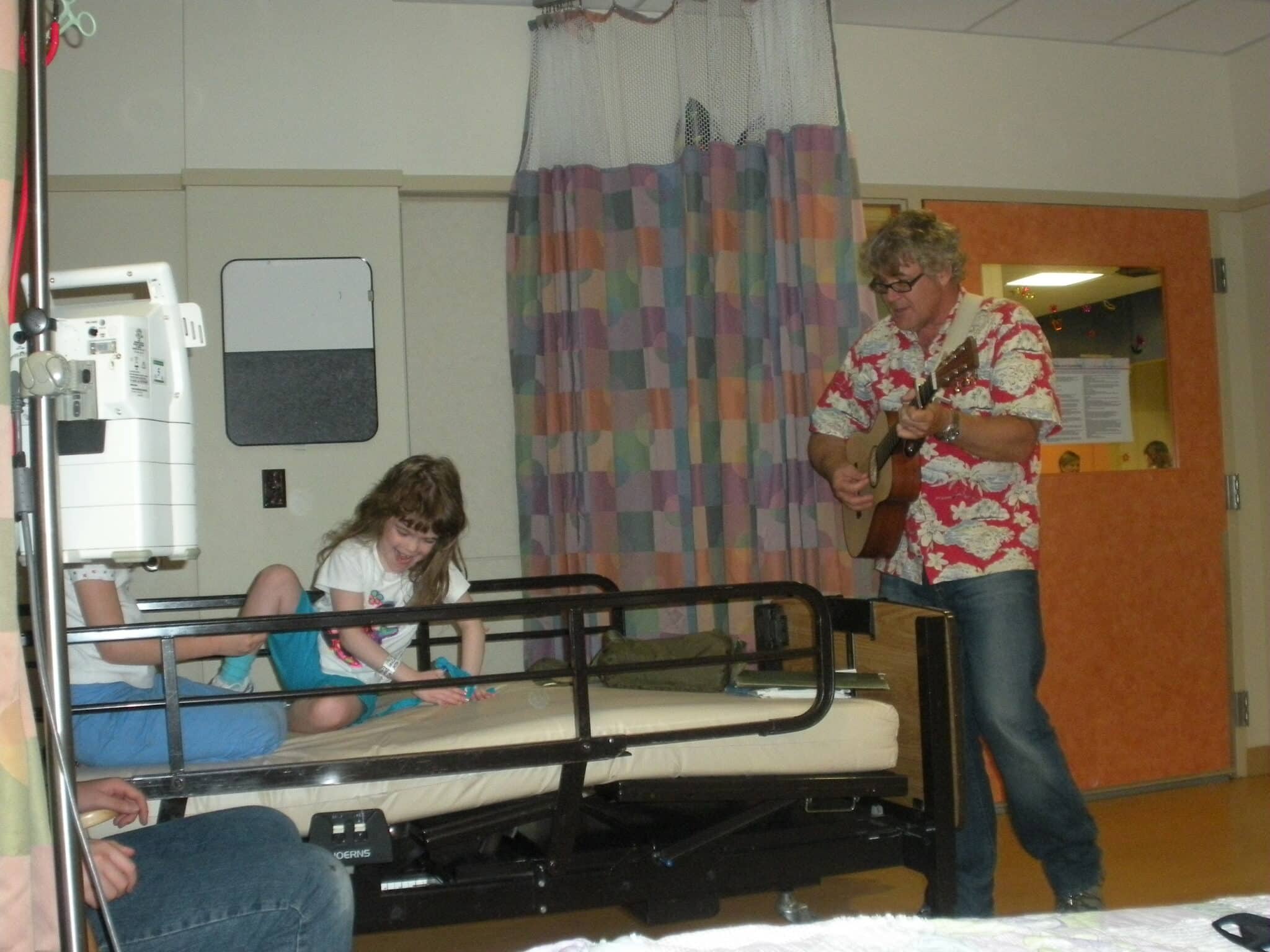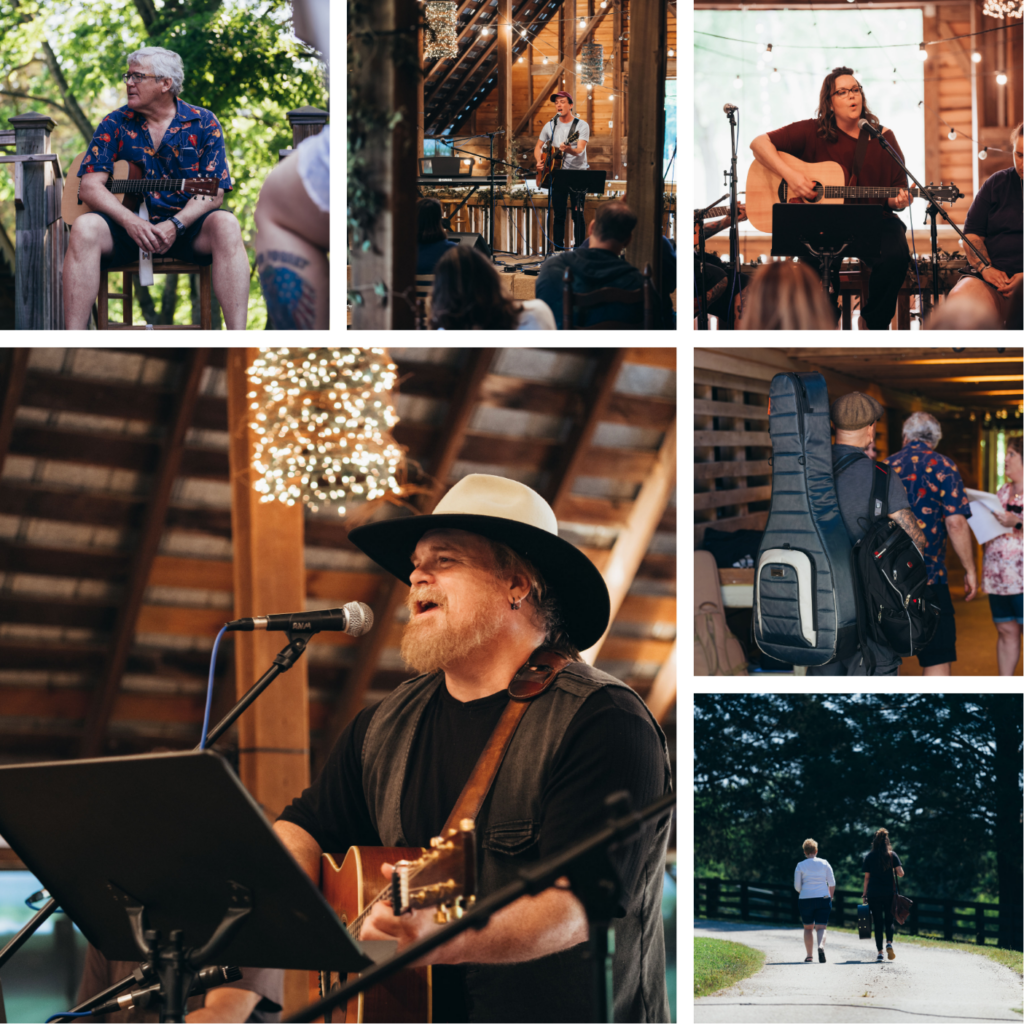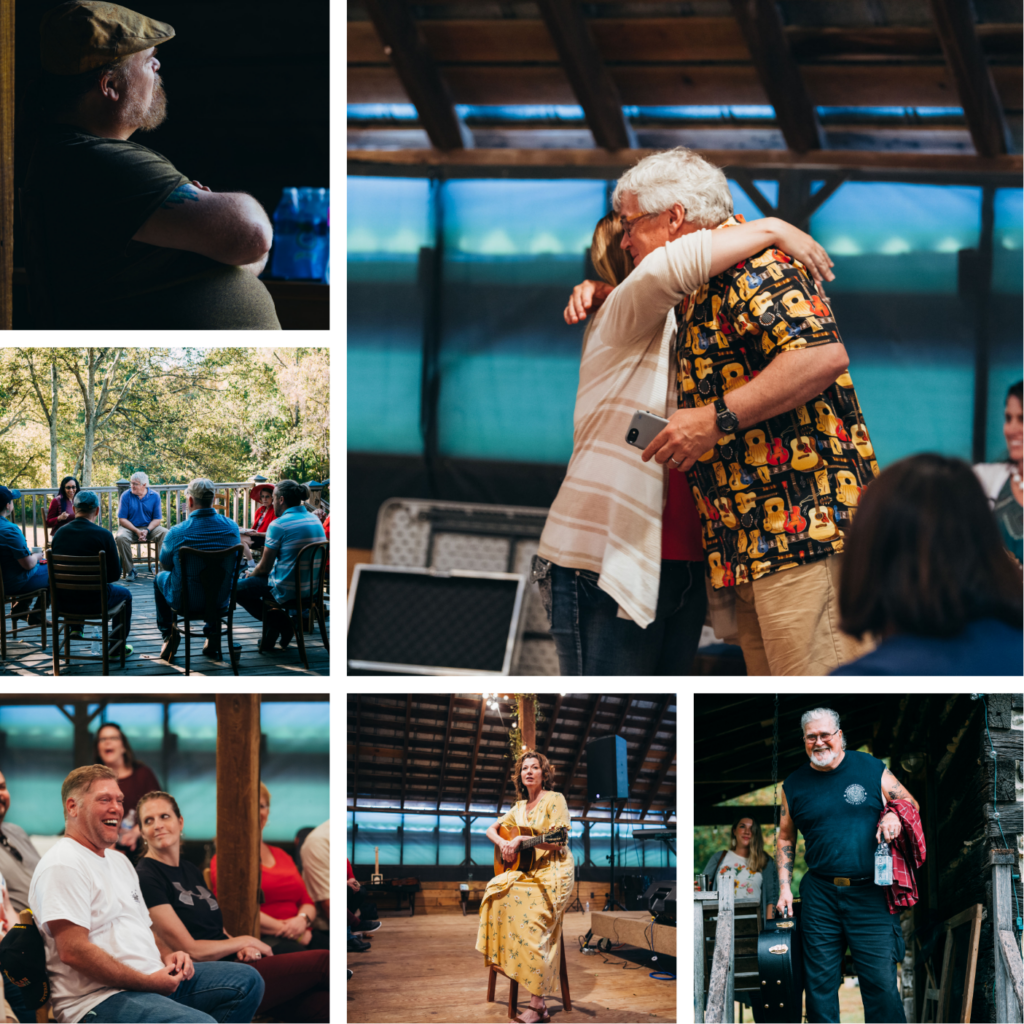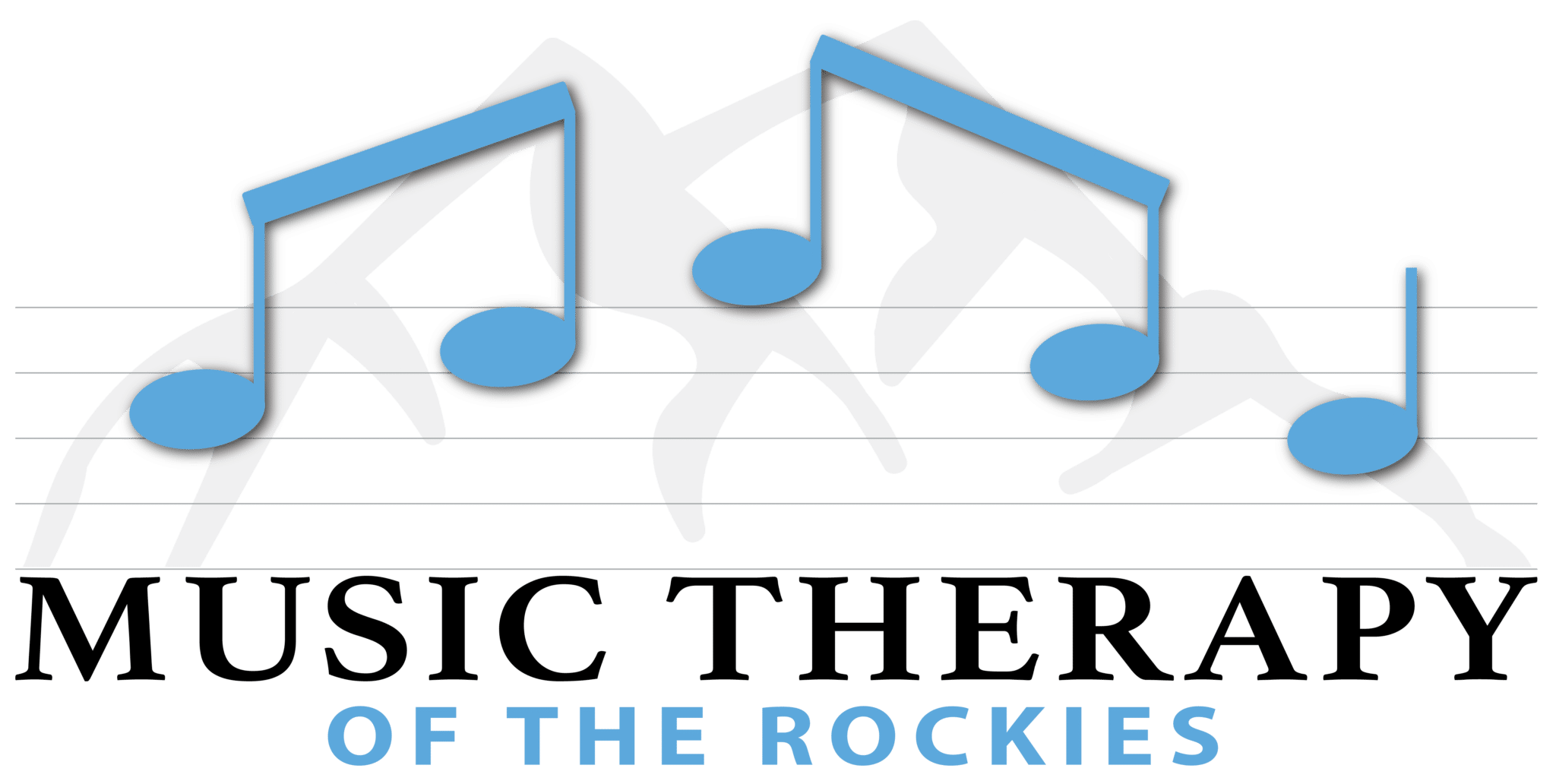Origin Story written by Mack Bailey, Founder and Executive Director of Music Therapy of the Rockies
Our Founder’s Journey: Playing for Smiles
It is common knowledge to musicians how powerful music is to the creator, performer, and listener. Gratefully, I have experienced so many of these powerful moments that led to the creation and development of Music Therapy of the Rockies.
Some of the highlights on my journey included visiting children at Johns Hopkins Children’s Center in Baltimore. While working with Hard Travelers, Kenn Roberts introduced me to a young lady with Cystic Fibrosis. I would go visit with her at Johns Hopkins and was with her the day she died of that terrible disease.
I then arranged to receive a grant to visit the patients and play music for them. One of my first days on the 9th floor, I walked into a room with a young girl. The mom was coming out and it was obvious that tensions and emotions were high and strained. As I walked in with my guitar, I asked how she was doing. She gave me an answer like it was the one I wanted to hear. I then told her that I didn’t work for the hospital but had just come to share music.
She then proceeded to tell me all the things that she didn’t like about being there. We wrote a verse to a blues riff and that became the 9th Floor Blues. Then every room I would go into, I would take the same approach and say that this patient down the hall said this. We ended up with over 100 verses.
My favorite verse is still:
Going in a bedpan is no fun
Going in a bed pan is no fun
It truly is a shame if you don’t have very good aim
Cause going in a bed pan is no fun.
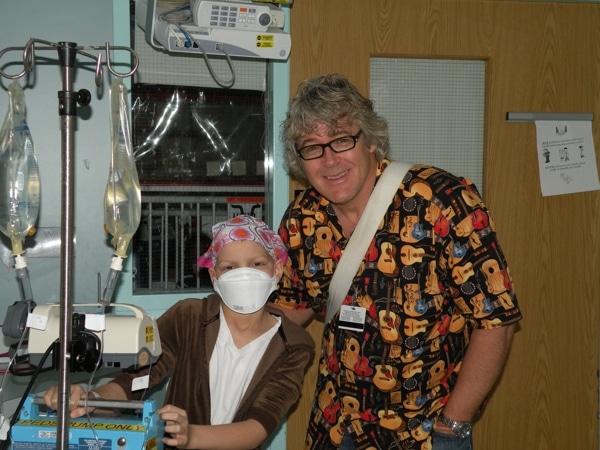
Another highlight for me was playing music in nursing homes. I would do either individual room visits or group shows. I was doing one to one room visits at a nursing facility and I walked into a lady’s room and introduced myself. I said, “my name is Mack Bailey, and I am sharing some music with folks and would love to play for you”. She said, “what the hell do you want?” I explained that I visited with folks and played my guitar and would love to spend some time with her. She said, “do what you have to do”.
As I played she became much friendlier and told me quite a bit about herself. We laughed and she told me what seemed to be her entire life story. After forty minutes, as I was preparing to leave, she said “I feel so sad”. I told her that my goal was to make her happy, not sad. She said, “I wish I had some money for you, but I don’t.” I replied that I don’t work for her money and that I work for smiles, if I could get a smile then I know I did my job. She looked at me and said, “if I would have known that, I would have put my teeth in.”
Songs for Veterans and a Masters in Music Therapy
Through the years, I became affiliated with a wonderful organization called Challenge Aspen. I was able to work with their CAMO (Challenge Aspen Military Opportunities) and write songs with groups of veterans. We wrote some cool and powerful songs and still do today. My wife, Rachel and I used to be directors of their Music and Dance Camp for special needs young people and adults.
I was still working and touring with the Limeliters and decided to come off the road. While I was not familiar with music therapy, it sounded interesting. I contacted William Davis at Colorado State University, and we started the conversation of me pursuing my masters in music therapy. What a wonderful gift it turned out to be.
It was 3 years of driving to Fort Collins from Denver, five days a week, and being in classes where I could have been every one of my classmates’ fathers — as well as some of my professors.
The curriculum was neurologic music therapy, so it was all brain based. I became fascinated by the science courses I took, including Neuroanatomy 500 level. While looking at brain scans of PTSD, I also observed brain images of music. I then placed one image over the other to see what parts of the brain affected by PTSD could be beneficial in healing by music. That is when the idea of the Music and the PTSD Brain program was born.
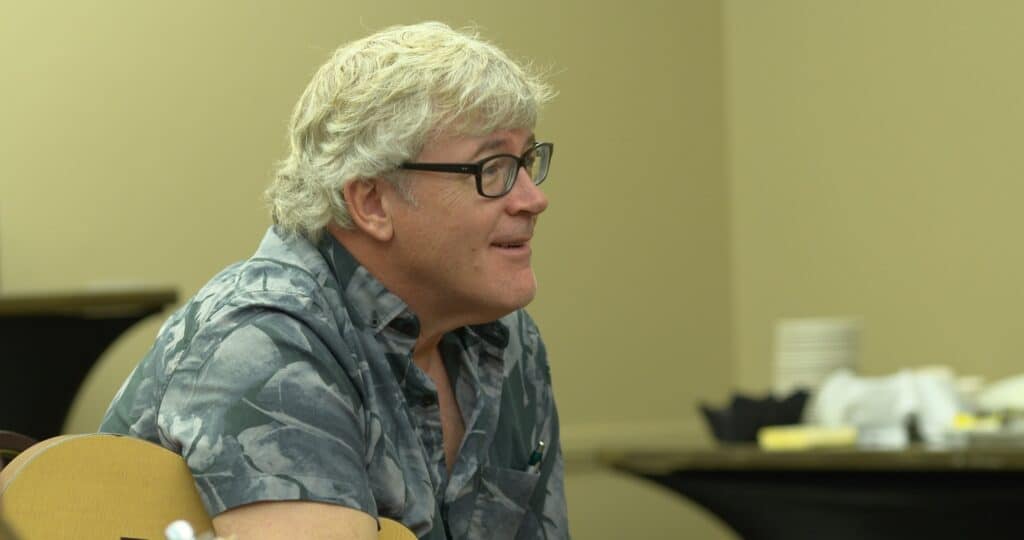
I took psychology courses, biology, physiology, and counseling courses. Through evidence-based research, I was able to visualize rewiring the PTSD brain. There is no doubt in my mind that PTSD is as neurological as it is psychological. I believe that there is a blending of music and therapy that allows true therapeutic healing to begin. My philosophy is that the brain is the hardware, and the mind and thoughts are the software. If the hardware is not working well, the software will not work well.
Music Therapy of the Rockies is working to partner with Massachusetts General in a year-long MRI study with Veterans and music therapy. We feel confident that we can show the powerful effect of music on the PTSD brain through scientific research and have a positive effect on future protocol in the treatment of PTSD.
How Music Therapy of the Rockies Began
There are many organizations that work with veterans and do great work supporting them. Some are outdoors activity oriented and some are music oriented. I have had the opportunity to be affiliated with various organizations and learned parts that appear to work well and observe what might be improved for the veterans and the organizations.
For example, there are organizations that fly veterans in for a destination experience, which is incredible. But there have been numerous examples where veterans back out at the last minute and then the organization is out the airfare and the hotel; and the veteran is out the therapeutic experience. The model I developed was to try and hold retreats where the veterans lived. As a therapist, I believe that true healing comes where you live. You normalize your life where you live.
Some organizations working at the intersection of music and veterans develop a style of “if you do this, and then we will do this.” My choice is to offer our program with no caveats. For example, we give the guitars out very early in the program, which allows us to just get started with a sense of respect and acceptance.
As I collaborated with other organizations, I started to develop the new and unique Music Therapy of the Rockies program model.
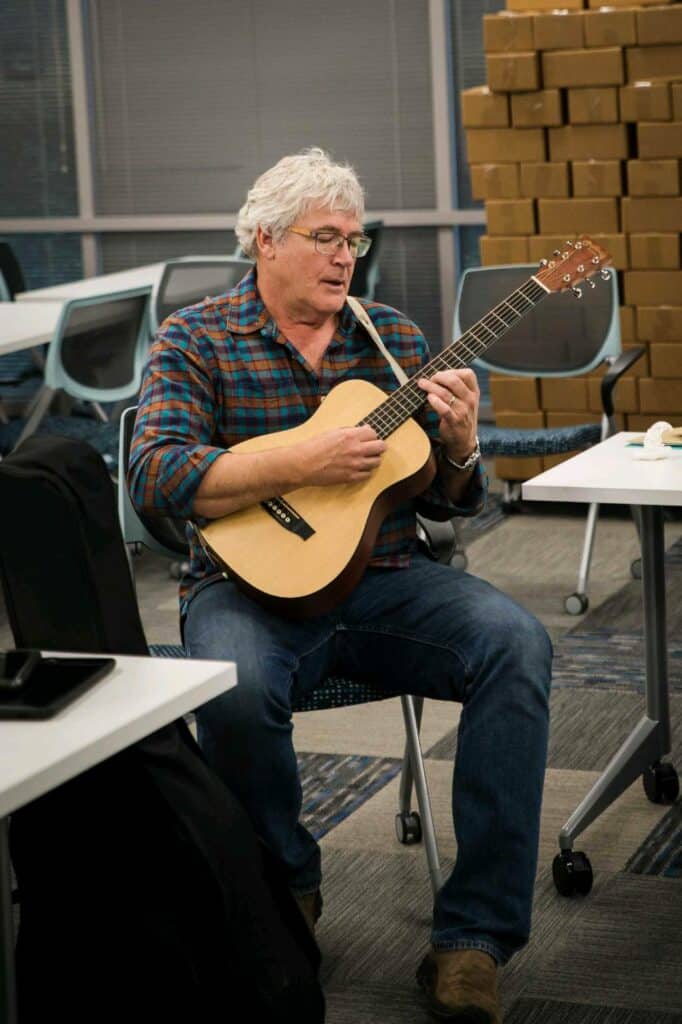
At a fundraising event, I asked Amy Grant if I could have a few minutes of her time. We had worked together before and she sat and listened. When I finished, she said she loved the idea and asked what we needed to make it happen. She offered her farm as a location in Nashville, TN. We set a date, rounded up songwriters, and visited the Nashville VA (U.S. Department of Veterans Affairs) to meet with their recreation therapist to recruit participants.
The first retreat in this pilot program was a success! I helped host 6 retreats with a collaborating organization over a 2 year period.
This time period helped solidify my vision of a model I really believed in, so I filled out the IRS paperwork and Music Therapy of the Rockies became an official 501(c)(3) in 2018. Since then, we have held 32 retreats in 8 states and have served 253 participants.
Our dream is to scale the model to train music therapists to run the retreats around the country. Expanding the number of states where we support PTSD survivors means serving more people right where they live, which we find to be most effective. With the proper funding, we are positioned to grow as a national organization.
Interested in supporting our ongoing research in Music Therapy and the PTSD brain? Donate today to support our mission.
